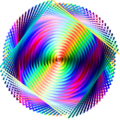Activities/Turtle Art/Galleries: Difference between revisions
Appearance
< Activities | Turtle Art
No edit summary |
|||
| Line 85: | Line 85: | ||
File:Pie1.png | File:Pie1.png | ||
File:Pie2.png|[http://5toescuela3.blogspot.com/2009/07/actividades-para-sugar.html Using Turtle Art for pie charts] | File:Pie2.png|[http://5toescuela3.blogspot.com/2009/07/actividades-para-sugar.html Using Turtle Art for pie charts] | ||
File:Keyboard.png|Q: How do I cast keyboard input to a string? | File:Keyboard.png|Q: How do I cast keyboard input to a string? A: Use chr(). | ||
File:Explicit_approach.png | File:Explicit_approach.png | ||
File:Approximation_approach.png | File:Approximation_approach.png | ||
Revision as of 19:57, 27 February 2011
Learning with Turtle Art
Play with Turtle Art to draw colorful art patterns using a turtle that accepts instructions for movement.
With visual programming blocks, you can snap together programs by compiling (combining) them in ways to create anything you can imagine.
maths
-
A clock activity
-
Calculating the hypotenuse and approximating the angle of a right triangle
-
Stepping through the program is a nice way to visualize the process of approximation
-
The final result of the approximation.
-
And on-the-fly function definitions
Tony Forster describes his "adventures" with on-the-fly definitions to create an analog clock in his blog.
Try any of the time or math library functions, e.g.,
localtime().tm_min
sin(x) + sin(pi/2)
presentations
games
Turtle Art can be used to write games, such as a simple falling block game:
sensors
Turtle Art supports sensor input:
-
Using a Hall-effect sensor, you can build a bike odometer in Turtle Art
More ideas for sensors [[1]] [[2]]
student work
Students from Caacupé have been sending me examples of their work:
-
Eduado Fabian Ayala Vargas
-
Johana Soeli Aquino
-
Ivan Silva
-
Rodrigo Nicolas Valdéz Bobadilla
-
Juan Pablo Espinola Carballo
-
Miguela
Just for fun
-
my elder cousin
-
Q: How do I cast keyboard input to a string? A: Use chr().
Recent features
-
Cartesian and polar coordinate grids
-
Collapsible stack
-
Collapsed stack
-
Python function with one, two, or three variables
-
Expandable bullet list (two bullets)
-
Expandable bullet list (four bullets)
-
Enlarged blocks
-
Shrunken blocks
-
100 Turtles
-
SVG output using the save SVG block
-
Multi-variable Python blocks
-
Turtle 'sees'



















































